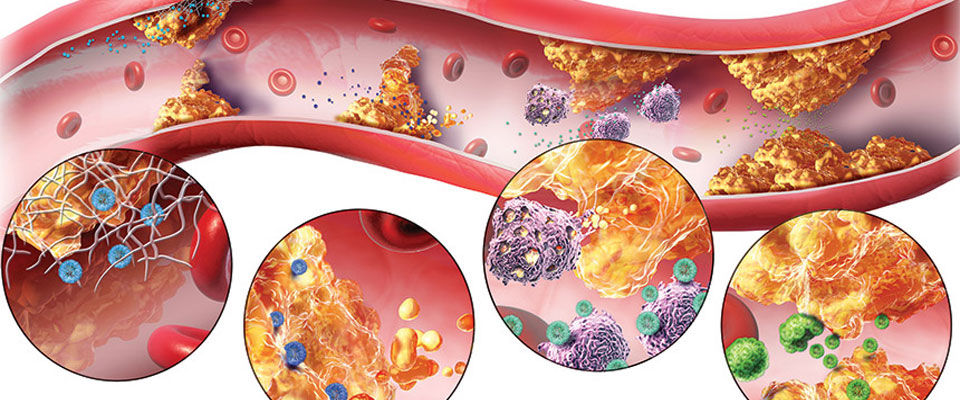
What Does Atherosclerosis Mean?
Atherosclerosis is a blood vessel disease that literally means "hardening of the arteries." Most commonly, large and medium-sized arteries are affected. The artery's inner wall is furred with cholesterol and calcium deposits that narrow or block the blood vessel. Atherosclerotic plaque is called these deposits. The multifocal condition is atherosclerosis. A patient with artery hardening in one area of the body, such as the heart, is likely to have the same condition elsewhere in the body. For this reason, someone with an atherosclerosis heart attack is at high risk of a stroke due to the same underlying condition affecting the brain arteries.
How Is Atherosclerosis Causing Problems?
Atherosclerosis causes symptoms in three ways:
(1) Restriction of blood flow
(2) Embolism (forms of blood clots, breaks off and lodges downstream)
(3) Thrombosis (artery clots and blocks)
The effect of atherosclerosis depends on which arteries are affected by the process of hardening. Angina and heart attacks are caused by heart atherosclerosis. Atherosclerosis causes strokes in the arteries supplying the brain. Hardened arteries in the limbs cause walking pain (intermittent claudicating). These conditions are explained in their website sections (see Treatment, Prevention, and Healing Conditions).
Risk Factors for Atherosclerosis
Fixed risk factors these are of limited interest since no one can change their age, the population they were born into or the age at which a parent suffered a heart attack or stroke. Vascular disease is an important risk factor for adverse events in others in any arterial territory. Surviving strokes are more likely than another stroke to die from a heart attack. Intermittent claudicating is also an important risk factor for heart disease and stroke. Strokes and intermittent claudicating are explained in their website sections (see Treatment, Prevention, and Healing Conditions). Changes in risk factors Smoking, hypertension, hypercholesterolemia, and sedentary lifestyle double the risk of acute myocardial infarction. The risk is multiplied when two or more are present.
Risk Factor That Can Be Changed
The more someone smokes, the higher the risk of hardening the arteries. This fact is complicated by the oddity that some people can smoke heavily without obvious ill effects, while others are much more susceptible to damage to the artery after smoking a few cigarettes. Some people can't get away with it.
Higher Blood Pressure
Hypertension is now defined by the International Society of Hypertension as systolic pressure above 140 mmHg and diastolic pressure above 90 mmHg. These levels are arbitrary because the risk of ischemic heart disease and stroke is steadily increasing throughout the entire blood pressure range. The effect of a population reduction of the only 5mmHg by lifestyle changes would be dramatic, reducing almost 1⁄4 heart attacks and 1/3 strokes. The lower the risk of atherosclerosis, the lower the blood pressure.
Exercise
Regular aerobic exercise provides considerable myocardial infarction protection. The current recommendation is 30 minutes of moderate activity on most days of the week.
Cholesterol
Like hypertension, the definition of hypercholesterolemia is arbitrary and the risk of vascular disease is steadily increasing across the entire range of concentrations of blood cholesterol. Treating patients with stating with arterial disease provides protection against heart attack and stroke even in patients with normal levels of cholesterol, as stating stabilize atherosclerotic plaque.
Diabetes
In all territories (cardiac, carotid and peripheral), patients with diabetes have a high risk of vascular disease. Good control of diabetes improves prognosis.
Alcohol
Heavy drinkers tend to have higher blood pressure, but those who regularly consume small amounts of wine have lower mortality rates than teetotalers.
Homocysteine
The blood levels of this amino acid can be an independent risk factor for arterial disease and increase vitamin B6 intake and reduce homocysteine levels effectively. Whether this will be an important way to reduce atherosclerotic disease is not yet clear
Gujarat Hospital provide best Atherosclerosis treatment in Surat and Gujarat.